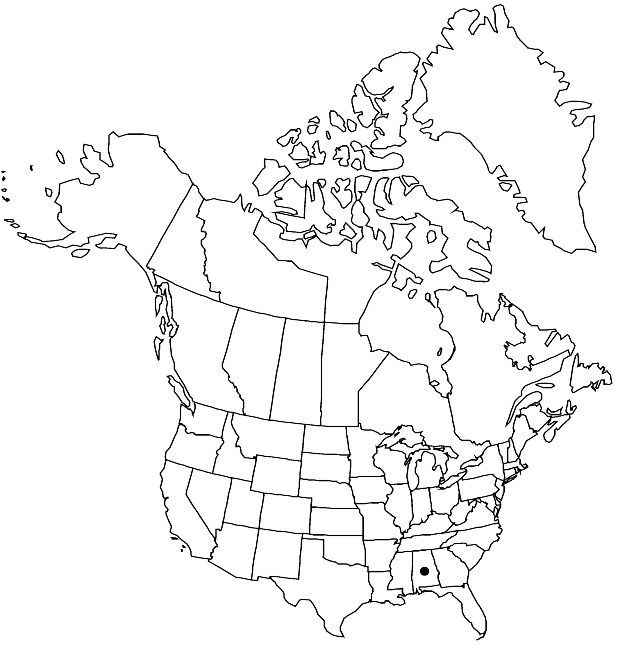Leavenworthia crassa
Contr. Gray Herb. 192: 62. 1963.
Stems (when present) 1–4 dm. Basal leaves: petiole (0.9–) 1.5–3 cm; blade 2.8–6.5 (–8) cm, lobes 1–8 on each side, margins entire or shallowly dentate, terminal lobe orbicular to broadly ovate, 0.5–1.2 (–2) cm × 5–11 (–18) mm, considerably larger than lateral lobes, margins entire or shallowly dentate. Fruiting pedicels: solitary flowers 40–80 mm; racemes 35–70 mm. Flowers: sepals widely spreading, oblong-linear, 4–5.7 × 1–2.1 mm; petals spreading, usually yellow, sometimes white, broadly spatulate to obovate, 9.5–14 × (2.5–) 3–6.7 (–8) mm, claw yellow to orange, 2.5–4 mm, apex deeply emarginate, apical notch 0.5–1 mm deep; filaments: median 4–6 mm, lateral 1.6–3 mm; anthers 0.9–1.3 mm. Fruits subglobose to oblong, (0.6–) 0.8–1.2 (–1.4) cm × (3.5–) 4–5 (–6) mm, smooth, subterete; valves thick; ovules 4–6 (–8) per ovary; style 2.2–5 (–6) mm. Seeds 1.7–3.4 mm diam.; wing 0.2–0.4 mm wide; embryo straight or nearly so. 2n = 22.
Phenology: Flowering Mar–Apr.
Habitat: Limestone cedar glades, pastures, fields, roadsides, near limestone sinks
Elevation: 150-300 m
Discussion
Of conservation concern.
Leavenworthia crassa is known only from Lawrence and Morgan counties.
Selected References
Lower Taxa
"elongated" is not a number."thick" is not a number."dm" is not declared as a valid unit of measurement for this property.
